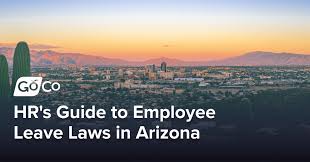How To Spot When Your Employer Is Violating Arizona Sick Time Rules?

Paid sick leave is more than just a benefit in Arizona; it is a right guaranteed under the Fair Wages and Healthy Families Act. The law guarantees that workers throughout the state can take time off to recuperate from illness, tend to a sick family member, or attend to other health-related requirements without worrying about losing their jobs or incurring reprisals. While the law is clear, not every employer follows it correctly. Knowing how to spot violations can help you protect your rights and take action if necessary.
Arizona’s Sick Time Rules
Under Arizona law, all employees, whether full time, part time, or temporary—are entitled to accrue paid sick leave. Employers with fifteen or more workers must provide up to forty hours of paid sick time each year, while smaller employers must provide up to twenty-four hours. After ninety days of employment, workers can start using their accrued sick leave, which is at least one hour for every thirty hours worked.
This law was designed to protect workers and their families while promoting healthier workplaces. However, some employers either intentionally or mistakenly fail to comply. Early detection of these warning indicators will help you keep the benefits you are legally entitled to. If you want to learn about filing complaints or reviewing your legal options under Arizona’s sick time law, you can find out more here through official state resources and legal guidance.
Red Flags That Suggest A Violation
One of the most common violations is when employers do not allow sick time to accrue properly. If you do not see any record of sick time accumulation on your pay stub or in workplace records, it could mean your employer is failing to track and credit your hours. By law, you should always have access to information about how much sick time you have earned and how much remains available.
Another red flag is outright denial of earned sick time. If you request time off for a covered reason, such as personal illness, caring for a family member, or attending medical appointments, and your employer refuses without a legitimate explanation, this may be a violation. Some employers try to limit when or how sick time can be used, but the law is very specific: workers can use their accrued hours whenever they qualify.
Retaliation is another serious issue. If you notice that after requesting or taking sick time, your hours are cut, your schedule changes unfairly, or you face disciplinary actions, this behavior could be retaliation. The law protects employees from punishment for exercising their right to sick leave, and retaliation is itself considered a violation.
Employers also sometimes misclassify employees to avoid providing sick time. For example, calling someone an independent contractor when they are, in fact, treated like a regular employee may strip them of their sick leave rights unlawfully. If you are consistently supervised, expected to work set hours, and provided with the tools for your job, you may be misclassified and entitled to sick leave benefits.
Why Documentation Matters?
If you believe your employer is violating sick time rules, keeping good records is essential. Save copies of your pay stubs, written requests for leave, responses from management, and any schedules showing reductions in hours. Documentation makes it much easier to show that violations occurred and to pursue a complaint through the proper channels.
Employees are frequently reluctant to report problems for fear of reprisals, yet the legislation is meant to defend workers who defend their rights. Maintaining accurate records not only strengthens your case but also deters employers from repeating the same conduct.
Steps To Take When You Notice A Problem
When you suspect your sick leave rights are being ignored, the first step is often to address the issue directly with your employer. Sometimes violations occur because of misunderstanding or poor recordkeeping rather than intentional misconduct. By bringing the issue to their attention, you may be able to resolve it quickly.
You have the right to complain to the Arizona Industrial Commission if your employer won’t fix the issue. The organization looks into claims of sick leave infractions and has the authority to punish noncompliant employers. In some situations, consulting with an employment lawyer may also be appropriate, especially if retaliation is involved or if you have suffered significant financial loss.
The Importance Of Knowing Your Rights
Awareness is one of the strongest tools employees have. By understanding how sick time is supposed to accrue, when it can be used, and how retaliation is prohibited, you can spot violations before they escalate. Many workers assume they have no recourse when benefits are denied, but Arizona’s laws are clear and enforceable.
Knowing your rights also benefits the workplace as a whole. When employees insist on fair treatment, it creates a culture of compliance and respect. This not only protects individual workers but also ensures healthier, more productive environments across industries.
Conclusion
Arizona’s sick time law is an important safeguard for workers, but it is only effective if employees know how to recognize when it is being ignored. Whether it is missing accrual records, denial of earned leave, or retaliation for using benefits, violations are more common than many people realize. By paying attention to these warning signs, keeping careful documentation, and taking appropriate steps, you can protect yourself and hold your employer accountable. Ultimately, staying informed and proactive ensures that your right to paid sick leave is not just written into law but honored in your workplace.




